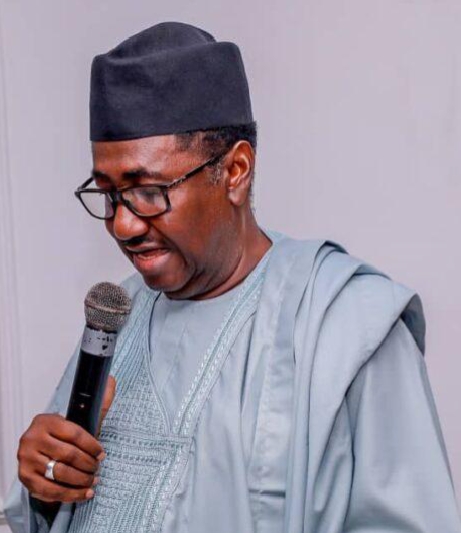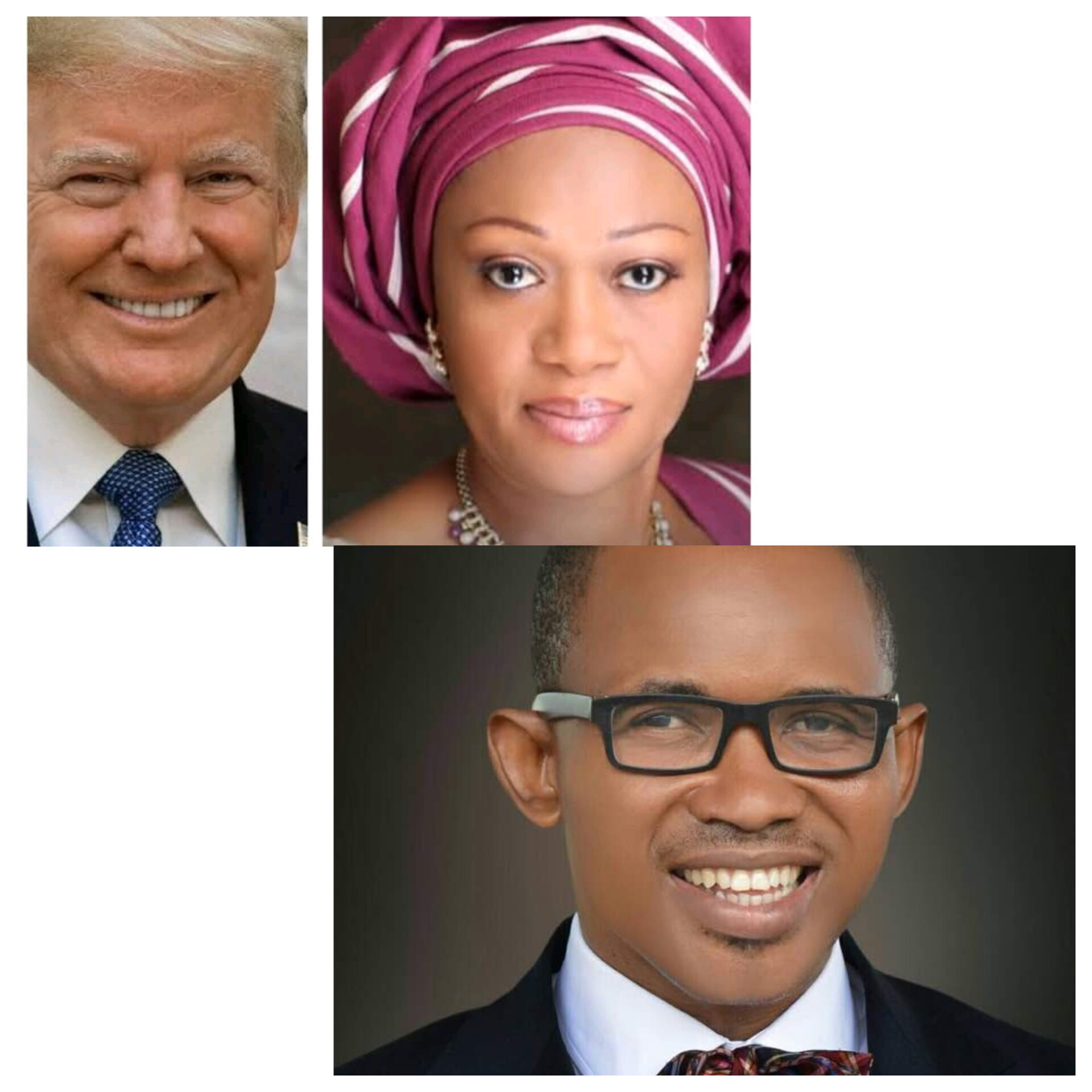The Divisive Dance of Reno Omokri: A Cautionary Tale of Polarizing Politics. By Chidi Ekeh

The Divisive Dance of Reno Omokri: A Cautionary Tale of Polarizing Politics
In Nigeria’s vibrant yet fragile socio-political landscape, voices that wield influence carry a profound responsibility to foster unity, clarity, and progress. Unfortunately, some figures exploit this influence to deepen ethnic and political divides, often cloaking their rhetoric in the guise of truth-telling or patriotism. Reno Omokri, a former aide to President Goodluck Jonathan and a prolific social media commentator, has emerged as a polarizing figure whose rhetoric has drawn sharp criticism, particularly from the Igbo community, for stoking ethnic tensions and promoting divisive narratives. Through a psychoanalytic lens, this piece exposes the mindset driving Omokri’s approach, unravels the mechanics of his influence, and urges Nigerians to reject the venom of divisive politics to safeguard national unity.
The Anatomy of Omokri’s Divisiveness
Reno Omokri’s public persona is a study in contradictions. Once a vocal critic of President Bola Ahmed Tinubu, Omokri has executed a dramatic pivot to become one of Tinubu’s most ardent defenders, a shift he attributes to new evidence, judicial rulings, and personal relationships—most notably with National Security Adviser Nuhu Ribadu. This transformation, however, is not merely a change of heart but a calculated maneuver that reveals a deeper mindset rooted in opportunism, selective outrage, and a penchant for exploiting Nigeria’s ethnic fault lines.
Omokri’s social media posts often carry an undercurrent of ethnic provocation, particularly targeting the Igbo community. For instance, his public refusal to wear Isi-Agu, a traditional Igbo attire, while claiming it was not rooted in bigotry, was perceived as dismissive of Igbo cultural pride. His accompanying call for Igbos to shed a “victim mentality” further inflamed sentiments, framing legitimate grievances as mere whining. Such statements, as noted by critics like Dr. Josef Onoh, a former Tinubu campaign spokesman, risk inciting ethnic strife by generalizing and stereotyping Igbo concerns. Onoh accused Omokri of “pitching the Igbo against Nigeria” through posts that revisit sensitive historical events, such as the 1966 coup, in ways that portray Igbos as adversaries to national unity.
Omokri’s commentary on Lagos governance under Tinubu provides another example of his divisive tactics. He has highlighted Tinubu’s appointment of Igbo individuals as commissioners and advisers, implying a benevolence that some interpret as a subtle jab at Igbo political influence. This narrative suggests that Igbos should be grateful for inclusion rather than assert their political agency, a framing that undermines their legitimate aspirations for equitable representation. Such rhetoric, as analyzed on platforms like LinkedIn, employs selective storytelling to paint Igbos as ungrateful or overly ambitious, fostering resentment rather than dialogue.
Perhaps most troubling is Omokri’s relentless campaign against Peter Obi, the Labour Party’s 2023 presidential candidate. His posts frequently juxtapose Obi’s perceived failures with Tinubu’s supposed successes, often with an ethnic undertone. For example, Omokri has accused Obi of fueling ethnic strife through the “Obidient Movement,” labeling it a greater threat to national security than Boko Haram. Such hyperbolic comparisons not only trivialize genuine security challenges but also cast Obi—and by extension, his largely Igbo support base—as enemies of the state. This selective vilification, contrasted with his newfound praise for Tinubu, reveals a pattern of aligning with power while scapegoating others to maintain relevance.
A Psychoanalytic Lens: The Mindset Behind the Rhetoric
To understand Omokri’s approach, we must delve into the psychological drivers that shape his public persona. At its core, his rhetoric reflects a mindset rooted in opportunistic pragmatism, a trait common among political influencers who prioritize personal gain over ideological consistency. Omokri’s dramatic shift from Tinubu critic to supporter—prompted by his investigation into Tinubu’s Chicago State University credentials, the Supreme Court’s ruling on drug allegations, and his close ties to Nuhu Ribadu—suggests a chameleonic adaptability. This pivot is less about conviction and more about aligning with the prevailing power structure, a hallmark of what psychologists term Machiavellian behavior—manipulating narratives to secure influence or favor.
Omokri’s fixation on Peter Obi, described by critics as an “obsession,” betrays a deeper psychological need for relevance in a polarized political landscape. By relentlessly targeting Obi, he taps into Nigeria’s ethnic and political fault lines, knowing that outrage drives engagement. This behavior aligns with narcissistic tendencies, where the need for attention and validation overrides ethical considerations. His posts, often laced with emotional and divisive language, are designed to provoke reactions rather than foster constructive debate, a tactic that thrives on Nigeria’s polarized social media ecosystem.
Moreover, Omokri’s rhetoric reveals a projection of insecurity. His accusations of Igbo “victim mentality” or political hypocrisy may reflect his own discomfort with being perceived as a political opportunist. By framing Igbos as the problem, he deflects scrutiny from his own inconsistencies, such as his sudden embrace of Tinubu after years of criticism. This projection serves to maintain his self-image as a principled commentator while casting others as the source of division.
The Mechanics of Influence: Propaganda and Polarization
Omokri’s social media strategy is a masterclass in modern propaganda. He employs selective storytelling, cherry-picking facts to construct narratives that resonate with specific audiences while alienating others. For instance, his posts praising Tinubu’s economic policies—such as fuel subsidy removal and naira flotation—often ignore the widespread hardship these policies have caused, framing them instead as bold reforms. Meanwhile, his criticism of Obi’s governance in Anambra, such as claiming Obi failed to build schools, exaggerates or distorts facts to diminish Obi’s credibility. This selective framing fuels polarization, pitting ethnic and political groups against each other.
His use of emotional language, such as labeling the Obidient Movement a “threat to national security,” taps into fear and mistrust, amplifying ethnic tensions. By invoking historical events like the 1966 coup or referencing Igbo dominance in past political eras, Omokri reopens old wounds, positioning himself as a truth-teller while subtly inciting division. This tactic, as noted in LinkedIn critiques, generalizes negative behaviors to entire communities, fostering stereotypes that undermine national cohesion.
The Danger of Divisive Voices
The consequences of Omokri’s rhetoric extend beyond social media spats. In a country with a history of ethnic violence and political instability, divisive language can have catastrophic effects. The Igbo community’s outrage, as articulated by figures like Dr. Onoh, stems from a fear that Omokri’s posts could incite real-world hostility, echoing the ethnic profiling that fueled the 1966 pogroms. His refusal to moderate his language or apologize for provocative statements, despite calls from Igbo leaders, signals a disregard for the fragile balance of Nigeria’s multi-ethnic society.
Moreover, Omokri’s alignment with Tinubu’s administration raises questions about his motives. His public support for Tinubu, often expressed through videos filmed in Ribadu’s office or posts thanking Tinubu personally, suggests a desire for political relevance or patronage. This opportunism undermines his credibility as a commentator, as critics like Jeff Okoroafor have noted, accusing him of prioritizing “clicks over credibility” and “theatrics over truth”. In a nation grappling with economic hardship, insecurity, and political distrust, such self-serving rhetoric only deepens public cynicism.
A Call for Unity and Discernment
Nigeria stands at a crossroads, where the voices we amplify will shape our collective future. Reno Omokri’s divisive politics, driven by opportunism and a need for relevance, represent a dangerous trend that Nigerians must reject. His tactics—selective storytelling, ethnic scapegoating, and emotional manipulation—exploit our differences rather than bridge them. To avoid the venom of such writings, Nigerians must cultivate discernment, questioning the motives behind inflammatory rhetoric and demanding accountability from influencers.
The Igbo community, like all Nigerians, deserves respect for their cultural heritage and political aspirations. Omokri’s refusal to wear Isi-Agu or his dismissal of Igbo grievances as “victim mentality” should be seen for what they are: attempts to provoke rather than unite. His obsession with Peter Obi and the Obidient Movement reflects not just personal bias but a broader strategy to polarize for clout. Instead of engaging with his provocations, Nigerians should focus on leaders and commentators who prioritize dialogue, empathy, and solutions.
To the Igbo community, the response to Omokri’s rhetoric should not be anger but resilience—continuing to build, as Peter Obi has done, through engagement with critical sectors and a commitment to national progress. To all Nigerians, the challenge is to reject the divisive dance of figures like Omokri, who thrive on chaos, and instead amplify voices that foster unity, accountability, and hope.
In the words of Chinua Achebe, “Nigeria is not a great country. It is one of the most disorderly nations in the world… But it can be great if we work together.” Let us reject the venom of divisive politics and choose the path of unity, for only together can we build a Nigeria that thrives for all.
Chidi Ekeh a public affairs analyst writes from FCT Abuja Nigeria





